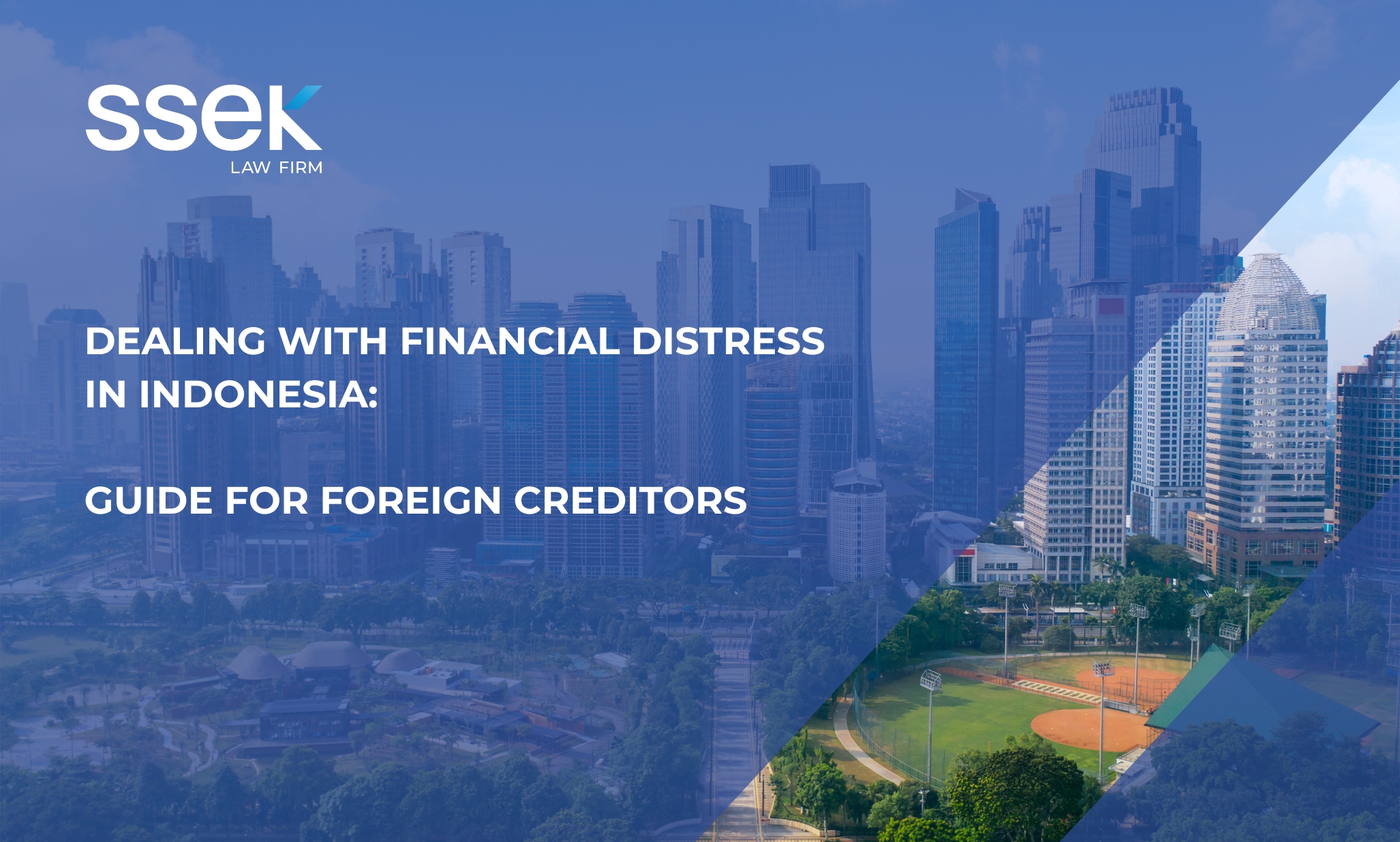

On August 18, 2019, Indonesian President Joko Widodo enacted Presidential Regulation No. 55 of 2019 regarding the Acceleration of Battery Electric Vehicle Programs for Road Transportation ("PR 55/2019"). This regulation is intended to outline the measures that will be taken by the Indonesian government to promote and accelerate the implementation of various battery electric vehicle (BEV) programs in Indonesia.
PR 55/2019 sets out five main directives to accelerate BEV programs in Indonesia, namely: (i) accelerating the development of the domestic BEV industry; (ii) the provision of incentives; (iii) the provision of charging stations and regulating electricity tariffs for charging electric vehicles; (iv) satisfaction of the technical requirements of electric vehicles; and (v) environmental protection.
Accelerating the Development of the Domestic BEV Industry
PR 55/2019 emphasizes that BEV or BEV component companies that wish to engage in the BEV industry in Indonesia must obtain the appropriate business licenses and build a manufacturing facility in the country. Companies can construct the facilities themselves or through a production partnership with another industrial company. PR 55/2019 also seeks to promote partnership between the government and private entities in conducting research, development and innovation in BEV technology.
It should be noted that there is a local content (Tingkat Komponen Dalam Negeri) requirement for the BEV industry under PR 55/2019, as set out in Article 8 of the regulation. PR 55/2019 stipulates minimum local content of 35%/40% (depending on the type of BEV) as of 2019, which will be periodically raised to a maximum of 80% by 2026 or 2030 (depending on the type of vehicle). If companies are not able to produce the BEV components domestically, the component can be imported on an Incompletely Knocked Down or Completely Knocked Down basis (as applicable).
Finally, the government will also control the distribution of fossil fuel-based vehicles in accordance with the national motor vehicle industry development roadmap set out by the Ministry of Industry.
Provision of Incentives
The government will provide various fiscal and non-fiscal incentives to companies aimed at promoting the acceleration of battery electric vehicles in the manner set out in Article 17(3) of PR 55/2019. The fiscal incentives include tax or import customs relief, discounts on vehicle charging fees, financial support for research or the construction of vehicle charging facilities, and certification for resources or products related to the industry.
Non-fiscal incentives include exemptions from limitations on the use of certain roads, the granting of production rights for technologies whose patents are held by the government, and the maintenance of the safety and security of those areas where the BEV industry operates.
Provision of Charging Stations and Regulating Electricity Tariffs for Charging BEVs
The provision of charging stations shall be carried out by a state-owned enterprise working in the energy sector and/or another business entity or entities. Initially, this service will be carried out by PT PLN, the state electricity provider, which will then be allowed to enter a partnership with another state-owned enterprise and/or business entity.
The sale of electricity at charging stations must be carried out by a company holding an electric power supply business license (Izin Usaha Penyediaan Tenaga Listrik) in the relevant working area. The government will also ease the process for installing charging stations in public areas such as gas stations, government offices, shopping areas and other public parking areas.
Technical Requirements for Battery Electric Vehicles
Each BEV imported, manufactured and/or assembled in Indonesia is subject to type registration (pendaftaran tipe) and type testing (uji tipe) in Indonesia. These vehicles must comply with the requirements under the relevant customs registration number (Nomor Induk Kepabeanan), as well as road-worthiness and technical requirements. They are also subject to periodical testing by the relevant working unit in the regency/municipal government or the private entities that are licensed to carry out such testing. Based on the result of the vehicle's type testing, the BEV will be further classified based on its chassis and electric motor.
Environmental Protection
The battery waste of BEVs must be recycled and/or managed by a company that is licensed to manage battery waste in accordance to the prevailing regulations. BEV or BEV component industries that manage battery waste in accordance with the prevailing regulations shall receive a token of appreciation for their contribution to the environment. The Minister of Environment and Forestry will issue a further regulation regarding the provision of such token of appreciation.
Implementation
The government will establish a Coordination Team tasked with accelerating the development of the domestic battery electric vehicle industry, referring to the national motor vehicle industry development roadmap set out by the Minister of Industry.
This Coordination Team will be chaired by the Coordinating Minister for Maritime Affairs and Natural Resources, with the Coordinating Minister for Economic Affairs as vice chair, and the following ministers/officials as members: (i) Minister of Finance; (ii) Minister of Research, Technology and Higher Education; (iii) Minister of Industry; (iv) Minister of Trade; (v) Minister of Energy and Mineral Resources; (vi) Minister of Transportation; (vii) Minister of Environment and Forestry; (viii) Minister of Home Affairs; and (ix) the head of the Indonesian Police.
The Coordination Team will be assisted by a Working Unit established pursuant to a regulation issued by the Coordinating Minister for Maritime Affairs and Natural Resources, as the head of the Coordination Team.
Conclusion
PR 55/2019 contains numerous provisions that seek to regulate the conduct of the battery electric vehicle industry in Indonesia. Most of these provisions are still broad in nature and we expect the future enactment of implementing regulations containing more details on the implementation of battery electric vehicle programs.
This publication is intended for informational purposes only and does not constitute legal advice. Any reliance on the material contained herein is at the user's own risk. You should contact a lawyer in your jurisdiction if you require legal advice. All SSEK publications are copyrighted and may not be reproduced without the express written consent of SSEK.









